How To Prevent Bedsores In Bedridden Patients
Bedsores or pressure sores or decubitus ulcer in elders are injuries to skin especially in the bony areas of the body like the heels, buttocks, hip, ankles, hips heels, elbows, shoulders and tailbone and underlying tissue resulting from prolonged pressure on the skin. It is more common in elders who are immobilized or confined to the bed for long periods of time.
It is significant to understand that bedsores account for 34,320 deaths annually, so there is need for healthcare providers and caregivers to prevent pressure points or bedsores in elders.
You can prevent bedsores in elderly people by:
It would help to reposition the elder every 2 hours to avoid prolonged pressure on the body; use a lifting device as a lifting sheet or Hoyer lift that helps prevent dragging of the person’s body on the sheet and causes friction to the skin.
Reduce pressure on the skin by using pressure reducing aids like cushions, mattresses, beds, booties, and elbow pads that are filled with foam, gel or air. Avoid using donut type devices as it would apply uneven pressure and lead to bedsores.
Ensure the time you turned and positioned the bedridden elder in addition to the other care you gave him or her. Also it is necessary to document whether the elder is eating and drinking properly.
Ensure your inspect the skin daily to identify vulnerable areas like buttocks, tailbone, knees, shoulders, hips, and ears where bedsores are likely to develop.
Make sure the head of the bed is as flat as possible because elevating the head at an angle forces the body to slump down deeper into the mattress and causes potentially damaging shearing force on the skin.
It is necessary to make sure that the skin is always clean from dampness and perspiration as this could accelerate the breakups. Ensure that you clean the skin with mild soap and warm water; do not rub hard, but use gentle strokes and pat dry with a soft towel. Avoid using products that contain alcohol as they could dry the skin.

Ensure that you keep the skin lubricated with a body lotion and use talcum powder in areas like breasts and armpits were excess moisture is likely to develop.
Adequate hydration is critical for the health of the skin, so ensure you monitor the fluid intake of the elder. It is necessary to make sure the elder at least drinks 8 glasses of water in a day. You could easily monitor signs of dehydration when you notice darker urine, dry mouth, and constipation.
Ensure you give the bedridden elder a nutritious diet that is rich in protein. Next make sure you give him/her dietary supplements such as nutrition shakes, omega-3, and zinc as prescribed by the doctor. It is also essential to make meal times a happy experience, making sure the elder eats the whole meal without refusing portions.
Lastly ensure you change wet bedding; also it is best to opt for sheets that are wrinkle-free and softened.
Image Courtesy: Google
Take the next step toward your goals
Share your requirement and find the best care providers in your area
-
Looking for a caretaker’s job? Build your profile and get in touch with families in your vicinity.
-
Discover nannies, babysitters, cooks, housekeepers, pet sitters, and elder care under one roof.
-
Get all the support you need to run a successful care center.
-
Search for appropriate centers near you depending on your needs.
Care Corner Insights: Blog Library
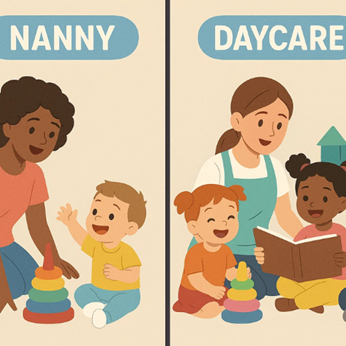
Nanny vs. Daycare in Naperville, IL: What Works Best for Indian Working Couples?
Hey Naperville Parents! Balancing work and family life is no small feat—especially for Indian working couples trying to juggle careers, household responsibilities, and parenting. One of the biggest decisions you’ll face? Choosing between a nanny or
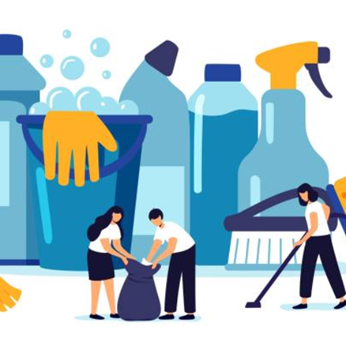
Housekeepers in Sugar Land, TX: Deep-Cleaning Checklists for Indian Homes
Housekeepers in Sugar Land, TX: Deep-Cleaning Checklists for Indian Homes Indian cooking = flavor + spices + love… but also oil splatters and stubborn stains. Time to reset! Degrease stovetops, chimneys, and exhaust fans. Scrub countertops, tiles,

12 Easy After-School Snack Ideas for Kids Who Get Hungry Quickly
School’s out, and the hunger hits hard! If your little ones come home ravenous and ready to raid the kitchen, you’re not alone. After-school snack time is prime time for refueling, recharging, and maybe even sneaking in a little nutrition. So here ar

Vegetarian Home Cook Services in Sunnyvale, CA: North & South Indian Meal Prep for Busy NRIs
Between work, family, and daily responsibilities, finding time to cook fresh meals can be difficult. That’s when a vegetarian home cook service in Sunnyvale makes life easier—bringing authentic North and South Indian dishes straight to your table. T

Hiring a Live-In Nanny in Plano, TX: A Practical Guide for NRI Households
For NRI families living in Plano, TX, raising children while managing work and household responsibilities can feel overwhelming. Many parents find that hiring a live-in nanny provides the right balance of support, convenience, and cultural comfort. U

Daycares in Fremont, CA for Indian Toddlers: Curriculum, Food Policies & Waitlists
You’ve probably met them — the parents at the park chatting about Montessori vs. play-based learning while handing their toddler a homemade paratha. The ones who ask every daycare in Fremont if they serve vegetarian meals. And yes, the ones who have
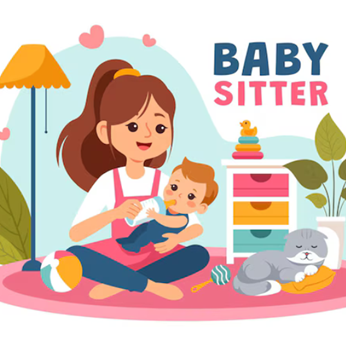
Babysitters in Jersey City, NJ for NRI Parents: Last-Minute, Weekend & Evening Options
You’ve probably seen them — the parents juggling grocery bags in one hand and a phone call to grandma in India in the other, while trying to keep their toddler from running into the road. The ones who cancel dinner plans because the babysitter bailed

Best Nanny Services in Edison, NJ for Indian Families: Costs, Language, and Cultural Fit
Edison, NJ, is home to one of the largest Indian communities in the U.S., and finding a nanny here often means looking for more than just childcare skills. For Indian families, cultural understanding, language fluency, and traditional values play a b
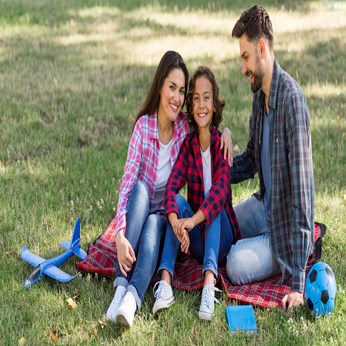
What Is Helicopter Parenting? How It Affects Children and Ways to Avoid It
You’ve probably seen them. The parents at the playground who shadow every move, wiping invisible germs off the slide before their child touches it. The ones who fill out job applications for their teens. And yes, the ones who email college professors
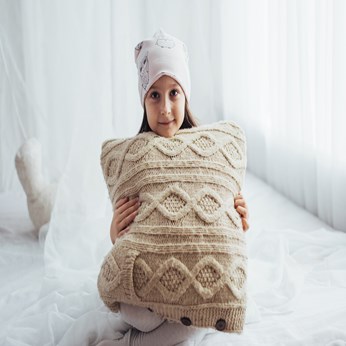
Are Weighted Blankets Safe for Children? Pros and Cons Explained
Weighted blankets have become a cozy trend in recent years. From helping adults sleep better to calming anxiety, they’ve earned a spot in many households. But when it comes to kids, especially the little ones, parents often ask: Are weighted blankets